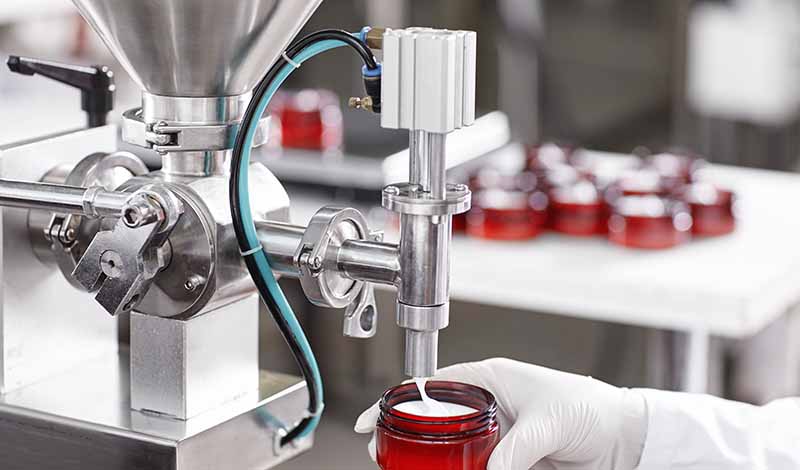
Cosmetics manufacturing is an exciting and dynamic sector. Influenced by different market trends and forces, the personal care and skincare industry is worth billions of dollars to businesses worldwide and enjoys a growing customer base.
This is where cosmetic manufacturing equipment and controls make such a difference for businesses globally. Whether these businesses are producing make-up, personal care products, hygiene items, skincare products, hair care goods, or other beauty retail products, they need the right manufacturing set-up to leverage real advantages in the market.
Here at PEC, we help businesses of all kinds achieve ideal manufacturing solutions that meet the needs of their customers. Starting a cosmetics or skin care manufacturing venture can be daunting, but it doesn’t have to be.
Reach out to our team to schedule a consultation and to discuss your specific requirements. Take a look below to learn more about this industry. We’ll discuss its key growth factors, and the importance of cosmetic manufacturing equipment and controls.
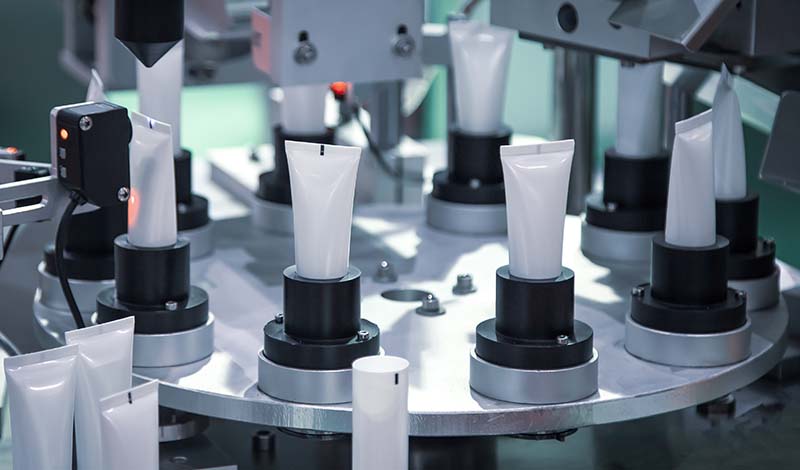
2023 is proving to be a big year in the growth of cosmetics manufacturing. Building on an impressive 2022 — when global cosmetics market revenue went beyond $93.05 billion — the market is expected to exceed $100 billion in 2023. This puts the industry on course for an annual worldwide revenue of $124 billion by 2027.
And this is before we factor in other related products, such as skincare and haircare. The high quality skincare market alone generated over $134 billion in 2020, and is expected to hit almost $188 billion worldwide by 2026.
All of this translates to a significant growth rate in the beauty industry, and a very exciting time for personal care and cosmetics product manufacturers. But what is driving these changes? Read on to learn more about some of the key factors influencing the market right now, and in the coming years.
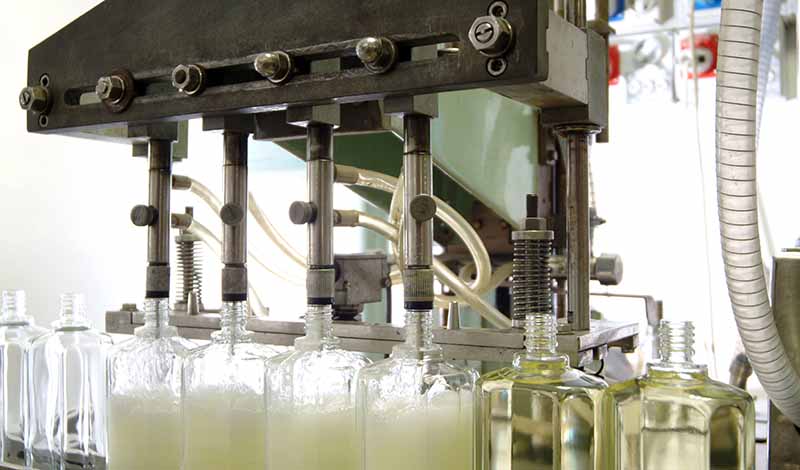
What are these primary driving factors in the cosmetics manufacturing and retail sectors?
1
The global cosmetics market is dominated by three major product categories: skincare, haircare, and make-up.
Cosmetic manufacturing operations in these categories are driving market growth forwards. However, there are significant opportunities for innovative products in other categories across this diverse field. As the market shifts and consumer tastes change, manufacturers need to be on the lookout for these opportunities.
2
Flagship beauty products and skincare brands are injecting substantial amounts of revenue into the global market. Statistics from 2020 show that the L’Oreal brand achieved over $33.4 billion worth of sales, supplying customers and retail partners around the world with products supported by one of the strongest brands in the industry.
Another flagship brand, Unilever, was second in terms of sales in 2020, delivering $22.5 billion worth of personal care and cosmetic products. Other major players include Proctor and Gamble, as well as Clinique and Estée Lauder.
The strength of these brands is good for the industry. These flagship names are generating huge amounts of revenue and interest in cosmetic products across the globe. In turn, this leads to opportunities for other cosmetic manufacturers and retailers in the market.
3
North America is still a significant driving force for growth in the global cosmetics industry, but the market is growing increasingly diverse. For example, the North Asia region made up around 35% of the worldwide market in 2021, demonstrating how customers beyond the traditional markets of North America and Western Europe are engaging with products in a big way.
While the North American and European markets are much closer to maturity, Asia-Pacific, African and South American markets represent a more dynamic set of conditions. New brands can make major gains in these markets, exploring new audiences and identifying new potential revenue streams.
Cultural and social differences between these markets will force cosmetic manufacturers and retailers to adopt a more diverse outlook, supporting customers across the globe.
4
The skincare industry and the cosmetics market are ideal for visual media. Customers choose these products because they want to look and feel their best, so they want to see the results of these products in action. Social media influencers are playing a big role in making this happen.
Visual social channels like Instagram, YouTube and TikTok are generating significant interest in beauty products and other cosmetics. In February 2023, the most popular beauty YouTube channel had over 16 million subscribers — proof of just how influential content creators can be, and how valuable they are to brands.
There is also the lifestyle element to consider. Influencers tend to project a certain lifestyle — one of travel, prosperity, and a strong aesthetic. This is another way in which social media is driving market growth in the cosmetics and beauty sectors
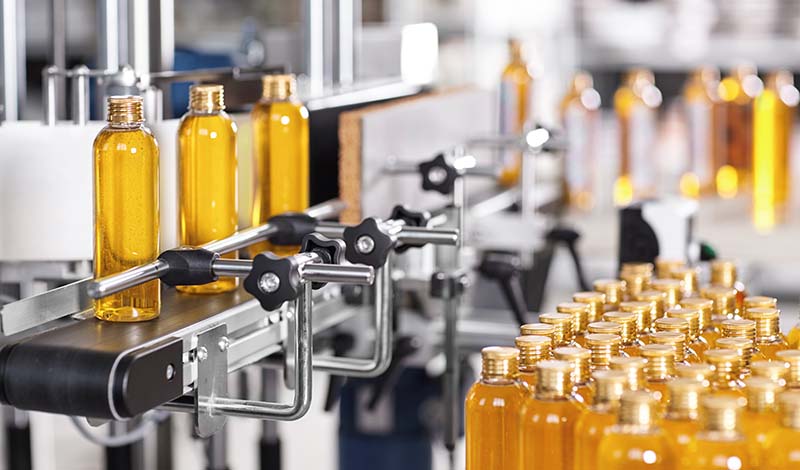
In order to capitalize on these key growth trends, businesses need to make sure they have the right cosmetic manufacturing equipment and controls on their side. With the right technological infrastructure and the right approach to innovation in equipment and processes, companies in this field can leverage the strong growth rate in the worldwide cosmetics market.
Here’s what makes these cosmetics manufacturing solutions so important.
1
Production costs and bottom line are constant considerations for cosmetic manufacturing firms. The potential for revenue is high in this industry, but businesses need to keep their costs under control if they are to maximize their profits.
Sophisticated manufacturing equipment and controls help businesses to remain on top of their costs. By analyzing production lines and smoothing out inefficiencies, these businesses can improve the return on their investment.
This infrastructure also helps to improve throughput. By increasing productivity at each stage of the process, manufacturers are able to bring products to market more quickly and in greater volume.
2
Cosmetics manufacturers exist within a broader supply chain. They deliver products to cosmetics retailers and order raw materials from suppliers to develop these products. This requires a strong understanding of resource availability and business needs, as well as the effective usage of these materials once they are received.
Cosmetic manufacturing equipment and controls help to achieve this. By utilizing state-of-the-art machinery, governed by smart controls and automated features, businesses can eliminate wastage, helping these resources last longer.
The data provided by manufacturing infrastructure also helps businesses understand material usage and requirements. By integrating with enterprise resource planning software, smart solutions support timely orders of new raw materials, keeping production moving forward in a positive and profitable manner.
3
Data is critical to the cosmetics manufacturing industry. We’ve touched on this above, identifying how data helps businesses solidify their position within the broader industry, strengthening their relationships with partners both up and down the supply chain. But manufacturing equipment and controls do more than this — they deliver data in real-time.
This is vital for achieving the flexibility and agility organizations need to thrive in this field. Data reporting capabilities are useful, but the insight they provide is retroactive. By feeding back data to the business’ digital solutions, cosmetics manufacturing infrastructure can support up-to-the-minute understanding and knowledge.
If there is an inefficiency within the production line, facility managers know about this immediately. When a piece of equipment needs to be repaired, upgraded, or replaced, teams understand this ahead of time. Downtime is minimized and production levels remain strong.
All of this real-time understanding is going to be very important as businesses target new opportunities in the future. The global cosmetics industry is bringing new opportunities and new markets, as revenue growth continues to be strong across the Asia-Pacific region and elsewhere. With up-to-the-minute data, manufacturers are better positioned to achieve success in these new areas.
4
Customer needs evolve and change over time. Some of these needs are seasonal — increased demand for sun protection products during the summer months, for example. Other needs represent changes in fashions and trends and may be more difficult to predict.
Businesses need to be ready to act on changing customer requirements and market forces. Staying engaged with social media — particularly with the influencers discussed above — can help to identify market directions and new fashions, but manufacturers need to back this up with highly capable equipment infrastructure and industrial controls that help them to deliver on these changes.
5
Cosmetics manufacturing equipment and digital software solutions no longer exist side-by-side — they work together, operating collaboratively thanks to enhanced communication and integration. Businesses that continue using old fashioned equipment run the risk of missing out on real market opportunities, as their solutions are simply not able to keep pace with the evolution of the global market.
This is where digital transformation is going to be highly influential. Businesses need to be able to embrace and adopt digital solutions within their infrastructure — drawing upon elements like automation, machine learning, and artificial intelligence as they shore up their operations for the future. To make this happen, sophisticated equipment and controls are necessary, giving organizations the solid foundation they need.
Modern equipment and controls lay the groundwork that makes digital transformation not only possible, but also highly effective. This transformation is a necessity, but some organizations may be reluctant to experience the disruption and change that transformation brings. Deploying the right solutions — both physical and digital — can accelerate this change, minimizing disruption and putting businesses on the right track for ongoing growth.
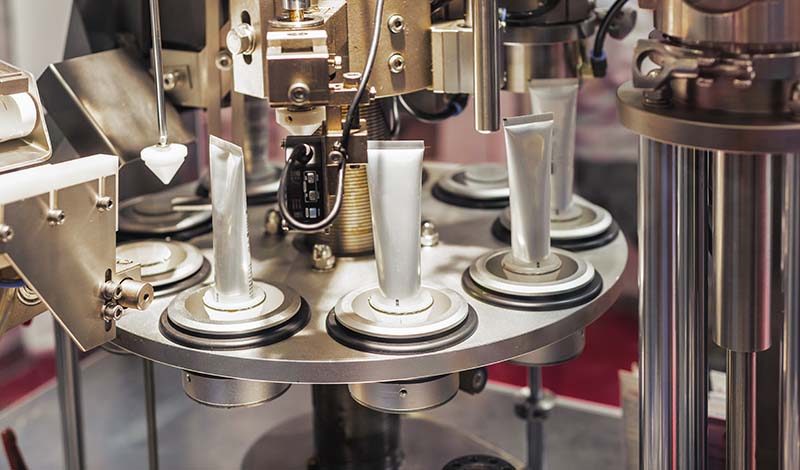
Here at Process Equipment and Controls, we specialize in helping businesses achieve the technological solutions they need to succeed in their field. The cosmetics manufacturing industry is no exception.
We draw upon our expertise as we design, build, and implement solutions that are tailored to your needs. Reach out to the team today to find out more about what we can do and to schedule your consultation.
Diverse Industries, One Trusted Partner
Safety means more than compliance; it’s our covenant with you.







Whether you’re coordinating your next project or proactively planning your plant maintenance, there’s no better time than right now to contact us.